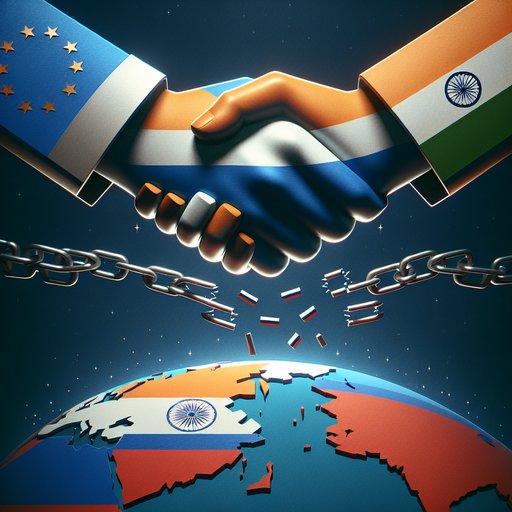
In a significant diplomatic confrontation, India has strongly pushed back against Western pressure over its Russian oil purchases, highlighting what it calls hypocritical trade policies by the US and European Union. The dispute has exposed growing tensions between Western sanctions regimes and the economic interests of emerging powers, as India points to continued European energy dealings with Moscow [1].
UPDATE: After the meeting between US envoy Steve Witkoff and Russian president Vladimir Putin, the USA has decided to raise the import tariffs for India to a staggering 50%.

The James Webb Space Telescope has produced a remarkable new image that reveals over 2,500 galaxies in unprecedented detail, many of which are seen as they appeared during the universe's infancy. This latest observation revisits a famous region of space previously photographed by the Hubble Space Telescope, but with Webb's superior infrared capabilities, it provides new insights into the early cosmic era [1].

Major budget cuts proposed by the Trump administration are sparking controversy as they target both domestic public broadcasting and international aid programs. The sweeping proposals have drawn criticism from Democratic lawmakers and public health experts who warn about potentially devastating impacts on both American public media and global health initiatives.

In a significant move that signals renewed confidence in the semiconductor industry, Canon is constructing its first semiconductor equipment manufacturing facility in two decades. The Japanese optical giant's decision comes amid growing demand for advanced packaging solutions and marks a strategic pivot back to semiconductor manufacturing equipment after a lengthy hiatus [1].

The landscape of sports sponsorship is undergoing a significant transformation as brands seek more meaningful ways to connect with fans through live events and digital streaming platforms. According to recent analysis [1], companies are increasingly focusing on creating emotional connections with audiences through sports partnerships, moving beyond traditional advertising to embrace more immersive and engaging sponsorship models.

The Federal Reserve maintained its benchmark interest rates this week amid mixed economic signals and personnel changes at the central bank. The decision comes as Federal Reserve Governor Adriana Kugler announced her resignation [1], creating another vacancy on the seven-member board that oversees U.S. monetary policy.

Recent discoveries in the realm of biology have shed light on the fascinating lives of gorillas, particularly through the lens of a new documentary titled 'Silverback.' This feature not only highlights the majestic nature of these creatures but also emphasizes the urgent need for conservation efforts. As we delve into the intricacies of gorilla behavior and their ecological significance, it becomes clear that understanding these animals is crucial for their survival and the health of our planet.

In a significant shift in U.S. climate policy, the Environmental Protection Agency has initiated steps to revoke the "Endangerment Finding," a cornerstone regulation that has enabled the agency to control greenhouse gas emissions for over a decade. This move represents one of the most substantial attempts to reshape American climate policy [1].

A series of significant court rulings has reshaped the landscape of U.S. immigration enforcement, with federal judges pushing back against sweeping deportation measures and asylum restrictions. The decisions come amid growing tensions over immigration policies both domestically and internationally, with similar debates playing out across Europe and other regions.

A significant development in EU-US trade relations has emerged as the United States postpones the implementation of its proposed 15% tariff rate on European Union exports. According to [1], both parties have agreed to extend negotiations for another week, signaling potential progress in resolving their trade disputes.




























